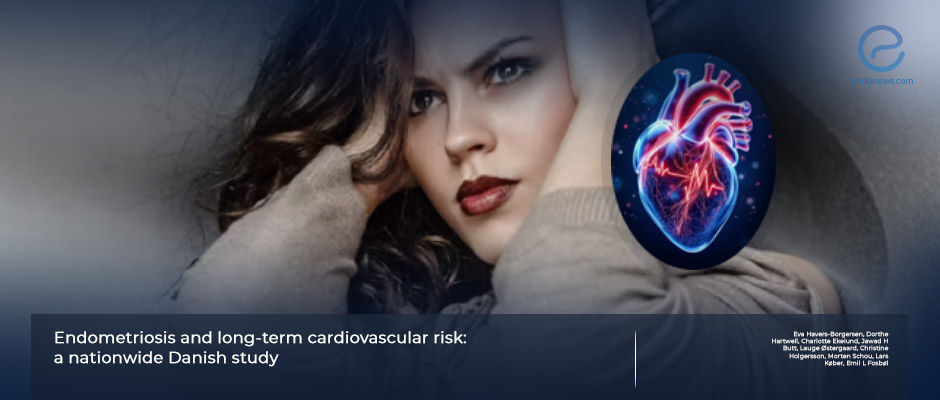The long-term cardiovascular risk in women with endometriosis.
Dec 5, 2024
A Danish population study to reveal the association between endometriosis and CVH.
Key Points
Importance:
- The link between endometriosis and cardiovascular outcomes remains understudied, despite shared pathophysiological features.
- Understanding this association is essential to improve prevention and long-term care for women with endometriosis.
Highlights:
- Women with endometriosis face a 15% higher risk of major adverse cardiovascular events compared to controls.
- This study emphasizes the need for targeted strategies to prevent cardiovascular complications in this population.
What's done here:
- Authors from Copenhagen University conducted a comprehensive nationwide cohort study to rexplore the association between endometriosis and cardiovascular disease.
- The study included 60,508 women with endometriosis and 242,032 matched controls across multiple ethnicities.
- Data were sourced from the Danish National Patient Registry from 1977 to 2020, ensuring comprehensive coverage.
- The primary outcome was a composite of acute myocardial infarction and ischemic stroke. Secondary outcomes included arrhythmias, heart failure, and all-cause mortality.
Key Results:
- Women with endometriosis exhibited more comorbidities and higher medication use compared to controls.
- During follow-up, 5.9% of women with endometriosis experienced myocardial infarction or ischemic stroke versus 4.9% of controls (p=0.01).
- Cumulative 40-year incidences of heart failure were significantly higher in women with endometriosis (9.7%) compared to controls (8.3%) (p<0.001).
- Women with endometriosis had a significantly increased risk of arrhythmias and heart failure compared to controls.
- Notably, women with endometriosis exhibited a lower cumulative incidence of death than controls, which was statistically significant.
Lay Summary
Endometriosis, a chronic and systemic condition affecting 10% of women of reproductive age, has far-reaching effects beyond the reproductive system. Recent research highlights its role in triggering systemic inflammation, oxidative stress, and endothelial dysfunction. These processes can disrupt liver metabolism, alter adipose tissue, and lead to an unhealthy lipid profile—factors linked to an increased risk of cardiovascular diseases (CVD), even in young women.
To explore this connection, Dr. Havers-Borgersen and collegues from Copenhagen University conducted a large-scale cohort study using the Danish National Patient Registry, analyzing over 40 years of data. The study compared 60,508 women diagnosed with endometriosis to 242,032 women without the condition, matched by age and year of diagnosis in a 1:4 ratio. The primary outcomes were major cardiovascular events, including heart attack and stroke, while secondary outcomes included arrhythmias, heart failure, and overall mortality.
Findings revealed that women with endometriosis had significantly higher rates of arrhythmias and heart failure compared to the control group. Interestingly, despite their heightened risk of cardiovascular complications, women with endometriosis showed a lower risk of overall mortality. This unexpected finding may reflect heightened awareness, more frequent monitoring, and early intervention among patients with endometriosis.
This study underscores the need for further research to uncover the mechanisms linking endometriosis to cardiovascular disease. By understanding these pathways, clinicians can better support women living with this complex condition.
The results of this groundbreaking study were recently published in the European Heart Journal.
Research Source: https://pubmed.ncbi.nlm.nih.gov/39219447/
epidemiology cardiovascular disease prevalence long-term risk heart failure myocardial infarction ischemic stroke endometriosis.

